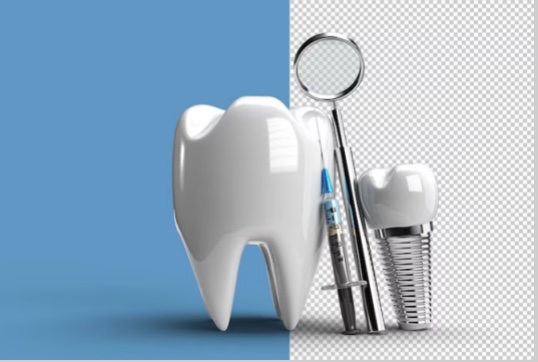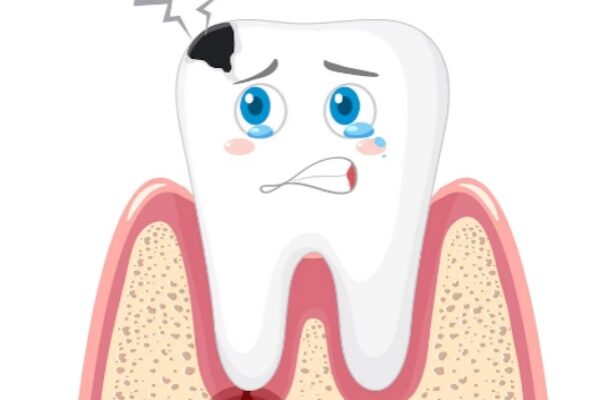Do you dread going to the dentist because of dental pains? Do you suffer from toothaches, sensitivity, or gum pain that disrupt your daily routine? Worry no more! Dental consultancy can be your solution to get rid of those nagging dental pains. In this blog post, we will explore how dental consultancy works and give you tips on what steps to take before consulting a dentist. Say goodbye to dental discomforts and hello to a healthy smile!
What is dentistry?
Dentistry is the practice of providing dental care for patients. A dentist is a healthcare professional who specializes in dentistry and helps people with dental problems. Dental pain can be caused by many factors, including toothache, gum disease, and decay. A dentist can help you find the source of your pain and contact dentist Brisbane to treat it accordingly.
What are the Causes of Dental Pain?
There are many causes of dental pain and it can be difficult to determine the root cause. Some of the most common sources of dental pain include:
1. Tooth decay or cavity: This is a condition in which decay or acids from stomach acids penetrate into the tooth and damage the surrounding tooth structure. This can cause acute or chronic pain.
2. TMJ (temporomandibular joint) disorder: This is a condition in which the temporomandibular joint (TMJ) – located between your jawbone and skull – isn’t working properly, leading to dental pain. The most common cause of TMJ is overuse, but it can also be caused by arthritis, trauma, or genetics.
3. Receding gums: If your gums recede (shrink away) due to age, disease, or an incorrect diet, they can press against nearby teeth and cause intense pain. You can treat this by having gum surgery or using medication to help promote tissue growth.
4. Injuries to the teeth and gums: Damage to teeth or gums can occur as a result of accidents (such as falls), sports injuries, burns, etc. This type of damage often results in inflammation and swelling around the tooth and may cause significant discomfort.
Types of dental pain
Dental pain can come from a variety of sources, and it’s important to seek out advice from a dentist if the pain is severe or bothersome. The most common causes of dental pain are cavities, toothaches, TMJ disorder, and periodontal disease. Here are some tips on how to relieve dental pain:
1. See a dentist as soon as you notice any signs of toothache or gum problems. If the problem is minor, try to treat it yourself with over-the-counter medications or home remedies. If the pain is severe, see a dentist immediately and get assistance from professional dental implants Sydney.
2. Visit your dentist regularly for checkups and cleanings to keep your teeth healthy and free from bacteria and plaque buildup that can cause toothache. If you have chronic gum disease, your dentist may also recommend oral surgery to remove diseased tissue and correct underlying problems.
3. Use over-the-counter analgesics such as ibuprofen (Advil, Motrin) or naproxen (Aleve). These medications relieve minor dental pain quickly but don’t usually address the root cause of the problem. If the pain is severe or lasts more than a few hours, ask your doctor for an opioid analgesic such as morphine or codeine. Opioids are effective in treating moderate to severe dental pain but can be addictive if used improperly. Talk to your doctor before taking these medications for dental pain.

How to Treat Dental Pain?
If you’re experiencing dental pain, there are a few things you can do to relieve it. First, make sure that you’re getting regular dental hygiene care. This includes brushing and flossing your teeth regularly, as well as visiting your dentist for checkups and cleanings. Second, if you have a problem with your bite or alignment, see a dentist to get corrective treatment. Finally, if all else fails and the pain is just too much to handle, speak to your doctor about possible treatments such as prescription medications or surgery.
How dentists practice dentistry
Dentists undergo extensive training in order to provide the best possible dental care. They learn how to diagnose and treat dental problems, using a variety of techniques.
One of the most common techniques dentists use is oral surgery. This involves performing procedures such as tooth extractions, crowns, and fillings. Dentists also use other techniques, such as root canals and oral surgery for issues that cannot be treated with other methods.
To become a successful dentist, you must have a strong background in medical sciences. You will also need excellent surgical skills and knowledge of oral anatomy. In addition, you will need good communication and teamwork skills so that you can work with other professionals involved in your care.
How to get rid of dental pains
There are various ways to get rid of dental pains. The most effective way is to consult a dentist and get the necessary treatment. However, some people find it difficult to visit a dentist regularly. In such cases, one can try certain home remedies to get rid of dental pain. Here are some tips that can help:
1) Take Ibuprofen or Acetaminophen for Pain Relief: One of the most common forms of relief from dental pain is by taking over-the-counter medication like ibuprofen or acetaminophen. These medications take the edge off the pain and provide temporary relief. Please consult your doctor before taking these medications, as they may have other health consequences if taken in high doses for an extended period of time.
2) Ice for Pain Relief: Another common method for relieving pain from dental procedures is by using ice packs on the affected area. This will help reduce swelling and inflammation, which will in turn lessen the intensity of the pain. Make sure to use a cold pack that is not too hard or it could further injure the tooth!
3) Gargle with Warm Salt Water: If you experience sensitivity when brushing your teeth, gargling with warm salt water can be very soothing. Add enough salt to make a solution that feels slightly salty but is not too hot. Swish this solution around your mouth several times before spitting it out. This remedy should be used only as a last resort after trying other methods of relief
Conclusion
Dental pain can be a real nuisance, and oftentimes it’s difficult to determine the source of the pain. If you’re experiencing dental pain that just won’t go away, consult with a dentist. They may be able to identify and treat the root cause of your pain quickly and effectively. In addition, they can provide you with advice on how to manage your dental pain in the future.

